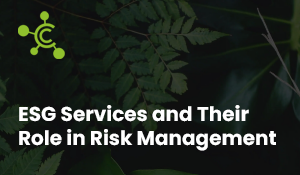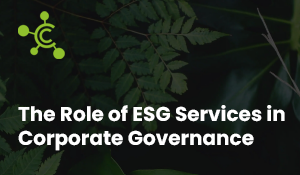Introduction
Environmental, Social, and Governance (ESG) principles are reshaping the landscape of modern business. As companies face increasing pressure from stakeholders, regulators, and consumers to operate responsibly, ESG services have emerged as a critical component in ensuring long-term success and sustainability. This guide delves into what ESG services are, their importance, and how businesses can effectively integrate them into their operations.
What Are ESG Services?
ESG services are specialized offerings designed to help organizations navigate the complex world of ESG requirements and best practices. These services typically include:
- ESG Assessments: Comprehensive evaluations of a company’s current ESG performance, identifying strengths, weaknesses, and areas for improvement.
- Reporting Services: Assistance in preparing ESG reports that comply with regulatory standards and voluntary frameworks such as the Global Reporting Initiative (GRI), Sustainability Accounting Standards Board (SASB), and the Task Force on Climate-related Financial Disclosures (TCFD).
- Compliance Consulting: Guidance on meeting local and international ESG regulations, ensuring that the company avoids legal penalties and reputational damage.
- Strategy Development: Crafting and implementing strategies that align with the company’s long-term goals, focusing on reducing environmental impact, improving social responsibility, and enhancing governance practices.
- Stakeholder Engagement: Facilitating communication and engagement with key stakeholders, including investors, customers, employees, and the community, to build trust and transparency.
Why ESG Services Are Essential
The importance of ESG services lies in their ability to help companies navigate the growing complexity of ESG-related demands. Here’s why they are essential:
- Regulatory Compliance: Governments and regulatory bodies around the world are implementing stringent ESG regulations. ESG services ensure that companies stay compliant with these rules, avoiding potential fines, sanctions, and legal challenges.
- Attracting Investors: ESG performance is increasingly becoming a key criterion for investors. Companies that demonstrate strong ESG practices are more likely to attract investment, as they are seen as less risky and more sustainable in the long run.
- Enhancing Brand Reputation: In today’s market, consumers and employees prefer companies that are socially and environmentally responsible. ESG services help companies build a strong, positive brand reputation, leading to increased customer loyalty and employee satisfaction.
- Risk Management: ESG services help identify and mitigate risks associated with environmental impact, social issues, and governance challenges. This proactive approach reduces the likelihood of facing crises that could harm the company’s bottom line.
- Operational Efficiency: Implementing ESG practices often leads to improved efficiency, such as reducing waste, lowering energy consumption, and streamlining processes, which can result in cost savings.
Implementing ESG Services in Your Business
Integrating ESG services into your business involves a strategic approach. Here’s a step-by-step guide:
- Assess Your Current ESG Status:
- Conduct a thorough assessment of your company’s existing ESG practices.
- Identify areas where your company excels and where improvements are needed.
- Set Clear ESG Goals:
- Define specific, measurable, achievable, relevant, and time-bound (SMART) goals for your ESG efforts.
- Align these goals with your overall business strategy.
- Choose the Right ESG Services Provider:
- Select a provider with a strong track record in your industry.
- Ensure that the provider offers services tailored to your company’s unique needs and challenges.
- Develop an ESG Strategy:
- Work with your ESG services provider to create a strategy that addresses all aspects of ESG—environmental, social, and governance.
- Focus on long-term sustainability and risk management.
- Implement the Strategy:
- Roll out the strategy across all levels of your organization.
- Engage employees, suppliers, and stakeholders in the process to ensure widespread adoption and support.
- Monitor and Report Progress:
- Regularly track your ESG performance against your goals.
- Use reporting services to communicate your progress to stakeholders, ensuring transparency and accountability.
- Continuously Improve:
- ESG is an ongoing journey. Regularly review your strategy and adjust as needed to stay aligned with evolving standards and expectations.
Conclusion
ESG services are no longer a luxury but a necessity for businesses aiming to thrive in the 21st century. As stakeholders increasingly demand transparency, responsibility, and sustainability, companies that invest in ESG services are better positioned to meet these expectations and achieve long-term success. By understanding the importance of ESG services and implementing them effectively, businesses can not only comply with regulations but also enhance their brand reputation, attract investors, and drive sustainable growth. Contact us today to see how we can help you.




